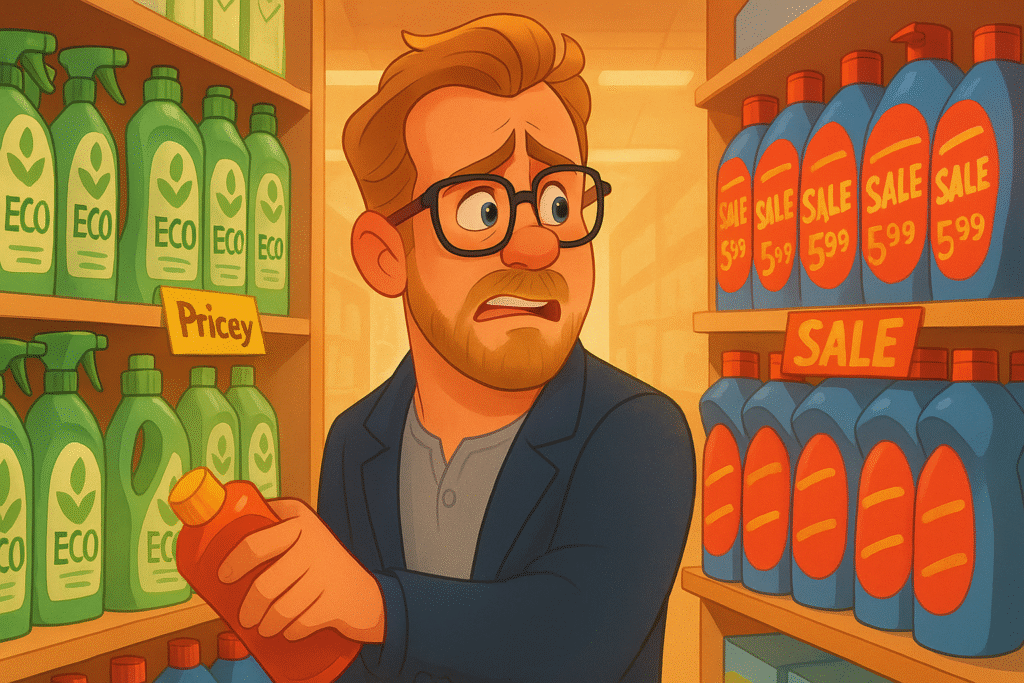
Why 78% of your customers are lying to you (and you’re buying it)
Last month, a client showed me their customer survey results with obvious excitement.
“Look at this — 82% of our customers say sustainability is extremely important when choosing products like ours. We’re launching our eco-friendly line next quarter.”
I’ve seen this movie before. It doesn’t end well.
What happens? The same thing that’s happening across every industry right now.
Your customers are lying to you.
Not intentionally.
Not maliciously.
But lying nonetheless.
Recent research analyzing $400 billion in retail sales reveals a scary truth:
While 78% of consumers claim sustainability REALLY matters to them, only 7% actually go on to purchase sustainable products when faced with the choice.
That’s not just a wee gap. It’s a dinosaur-killing crater.
And sustainability isn’t the only area where stated preferences and actual behavior live in totally different universes.
Plant-based food companies discovered this the hard way in 2024-25.
Despite no end of surveys showing consumer interest, the entire plant-based retail market declined 4% in dollar sales.
Over 25% of consumers became “lapsed buyers” — trying plant-based products once, then never again.
The price premium that survey respondents claimed they’d GLADLY pay?
It went POOF the moment they stood in the grocery aisle comparing $8 plant-based burgers to $4 conventional ones. (And thinking about how much more the regular eggs and milk now cost, no doubt.)
In I Need That, I explain how our brains trick us into believing our rational tank brain drives decisions, when it’s actually our impulsive dog brain making most choices. Survey responses come from the tank brain — thoughtful, aspirational, socially conscious.
Purchase decisions are pure dog brain territory, driven by immediate pocketbook factors like price, convenience, and familiar comfort.
This creates what researchers now call the “say-do gap” — and it’s wreaking havoc on product strategies across every industry.
Product Payoff: Cereal giant General Mills learned this lesson expensively, lowering its 2024 organic sales guidance from 3-4% growth to completely flat performance after surveys suggested robust demand for premium organic products. Meanwhile, private label cereals gained market share, reaching 9% of sales as price sensitivity trumped stated brand loyalty.
The company pivoted to direct-to-consumer channels specifically to gather actual purchase behavior rather than relying on survey feedback that consistently overstated willingness to pay premiums.
Your next move: Before making any major product decisions based on customer surveys, test with real money. Create small-scale purchase opportunities that require actual payment — not hypothetical interest.
Watch what people do with their wallets, not what they say with their words. There can be a huge difference.
Over the next few emails, I’ll show you exactly how smart companies are adapting to this reality, including the tech platforms discovering their most vocal user complaints actually drive the highest engagement.
Have you noticed say-do gaps in your own customer feedback?
Pop that reply arrow and share your experience with the difference between what customers claimed and what they really chose.
Or reach out to my team of product go-to-market specialists at Graphos Product.
Next: How Instagram’s most hated feature drives 90% more engagement
